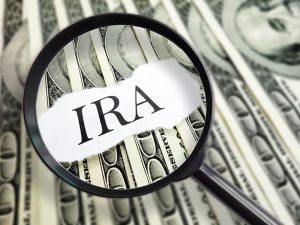“Is there a difference between payroll deduction IRAs and employer-sponsored IRAs?”
ERISA consultants at the Retirement Learning Center Resource Desk regularly receive calls from financial advisors on a broad array of technical topics related to IRAs, qualified retirement plans and other types of retirement savings and income plans, including nonqualified plans, Social Security and Medicare. We bring Case of the Week to you to highlight the most relevant topics affecting your business.
A recent call with a financial advisor from New Jersey is representative of a common inquiry related to workplace IRAs.
Highlights of the Discussion
Payroll deduction IRAs and employer-sponsored IRAs are similar, but they have important differences. A key difference is level of involvement by the employer.
The IRS views payroll deduction IRAs as arrangements that merely allow employees to make contributions to IRAs by having amounts deducted from their paychecks by their employers which are then directed to IRAs for deposit. There are no employer contributions. All the standard IRA rules apply. Further, if a payroll deduction IRA program follows the IRS’s safe harbor rules for structure, it is not considered an employer pension plan and, therefore, exempt from the rules of the Employee Retirement Income Security Act of 1974 (ERISA) (see DOL Reg. 2510.3-2(d) [1] and Interpretive Bulletin 99-1). [2]
Generally, a payroll deduction IRA is not considered an ERISA plan if
- it is voluntary;
- there are no employer contributions;
- the employer does not endorse a particular IRA provider (although limiting the number of IRA providers is permitted within limits); and
- the employer receives only reasonable compensation for administrative services.
In contrast, IRC Sec. 408(c) [3] and IRC Sec. 219(f)(5) [4]allow employers and employee associations to establish employer-sponsored IRA arrangements and make employer contributions to employees’ IRAs or a common trust fund that separately accounts for the employees’ contributions. Employers who want an IRS ruling on their employer-sponsored IRA plans may file IRS Form 5306, Application for Approval of Prototype or Employer-Sponsored Individual Retirement Arrangement. [5]These are savings arrangements other than simplified employee pension (SEP) plans under IRC Sec. 408(k) or savings incentive match plans for employees (SIMPLE) IRA plans under IRC Sec. 408(p). Consequently, all the standard IRA rules apply.
Any amount contributed by an employer to an IRA that is employer sponsored under IRC Sec. 408(c) shall be treated as payment of compensation to the employee (other than for a self-employed individual), deductible by the employer and subject to Social Security and unemployment taxes. Employees may be able to deduct such contributions under the standard rules that apply for the deductibility of traditional IRA contributions [Treasury Regulation 1.219-1(c)(4) [6]]. In this scenario, the employer-sponsored IRA arrangement is considered an ERISA plan for certain purposes, for example, they are subject to limited Form 5500 Reporting (See “IRA Plans” IRS Form 5500 instructions [7]).
Conclusion
While payroll deduction IRAs and employer-sponsored IRAs have similarities, the DOL views them differently, depending on the level of involvement by the employer.
